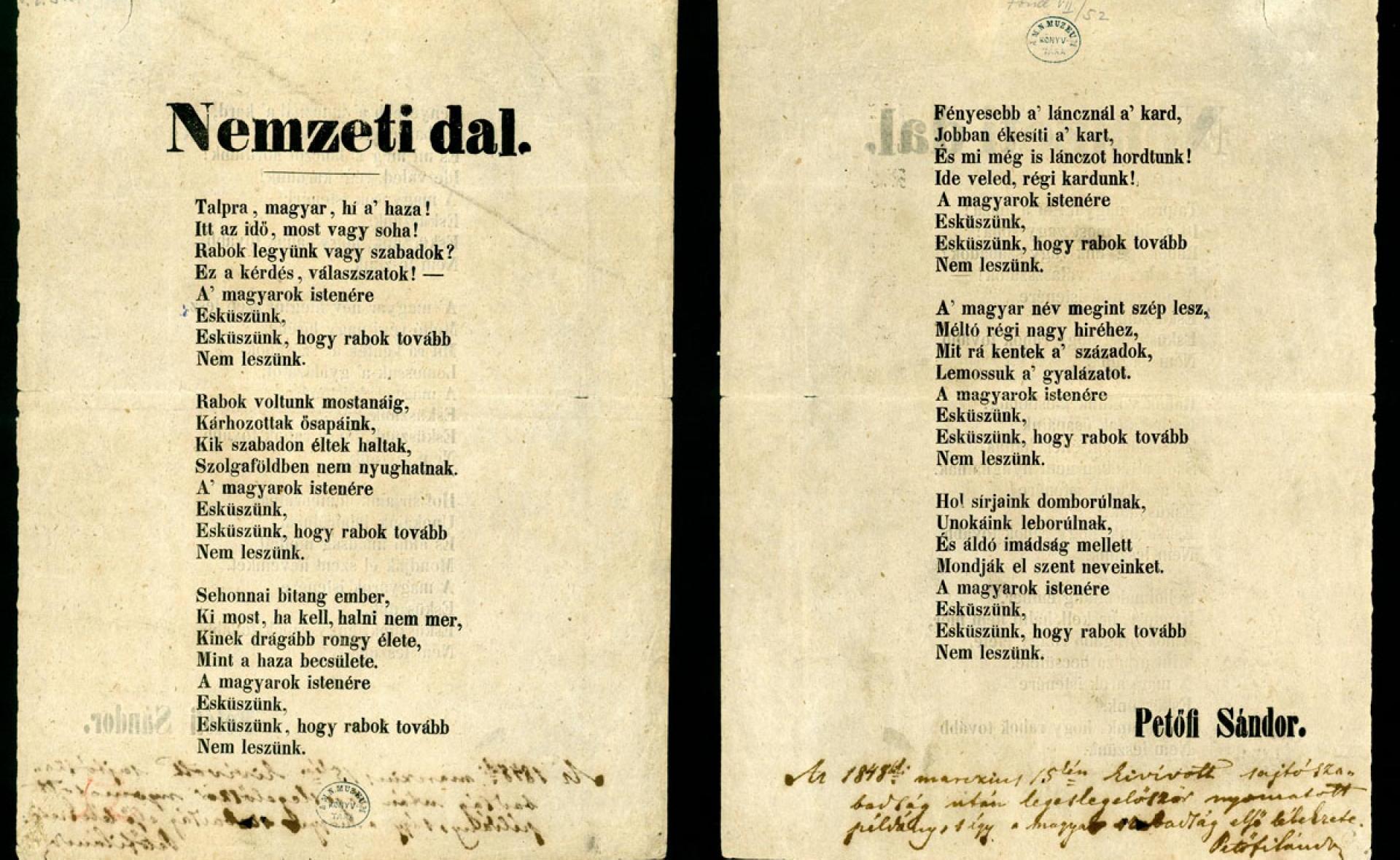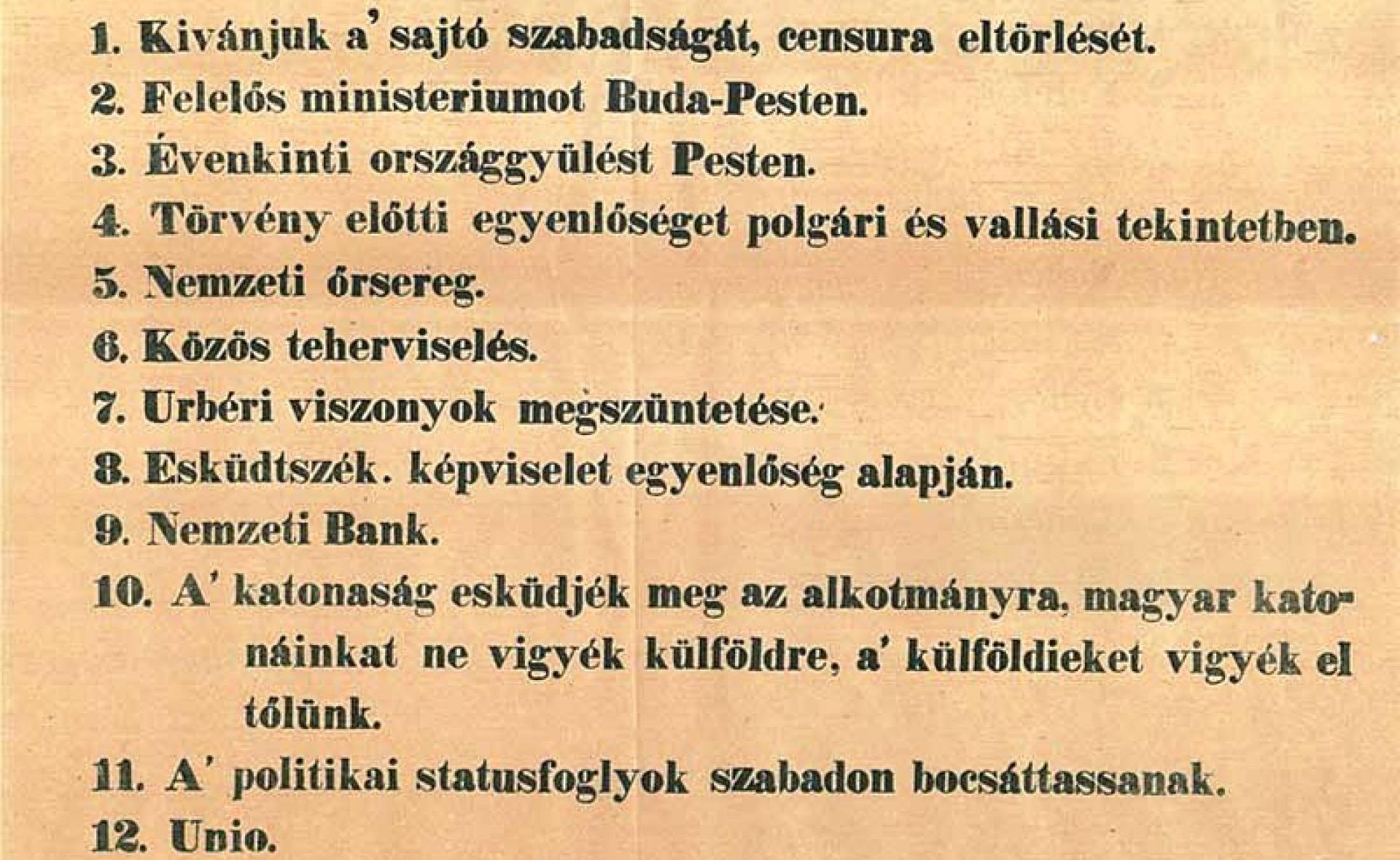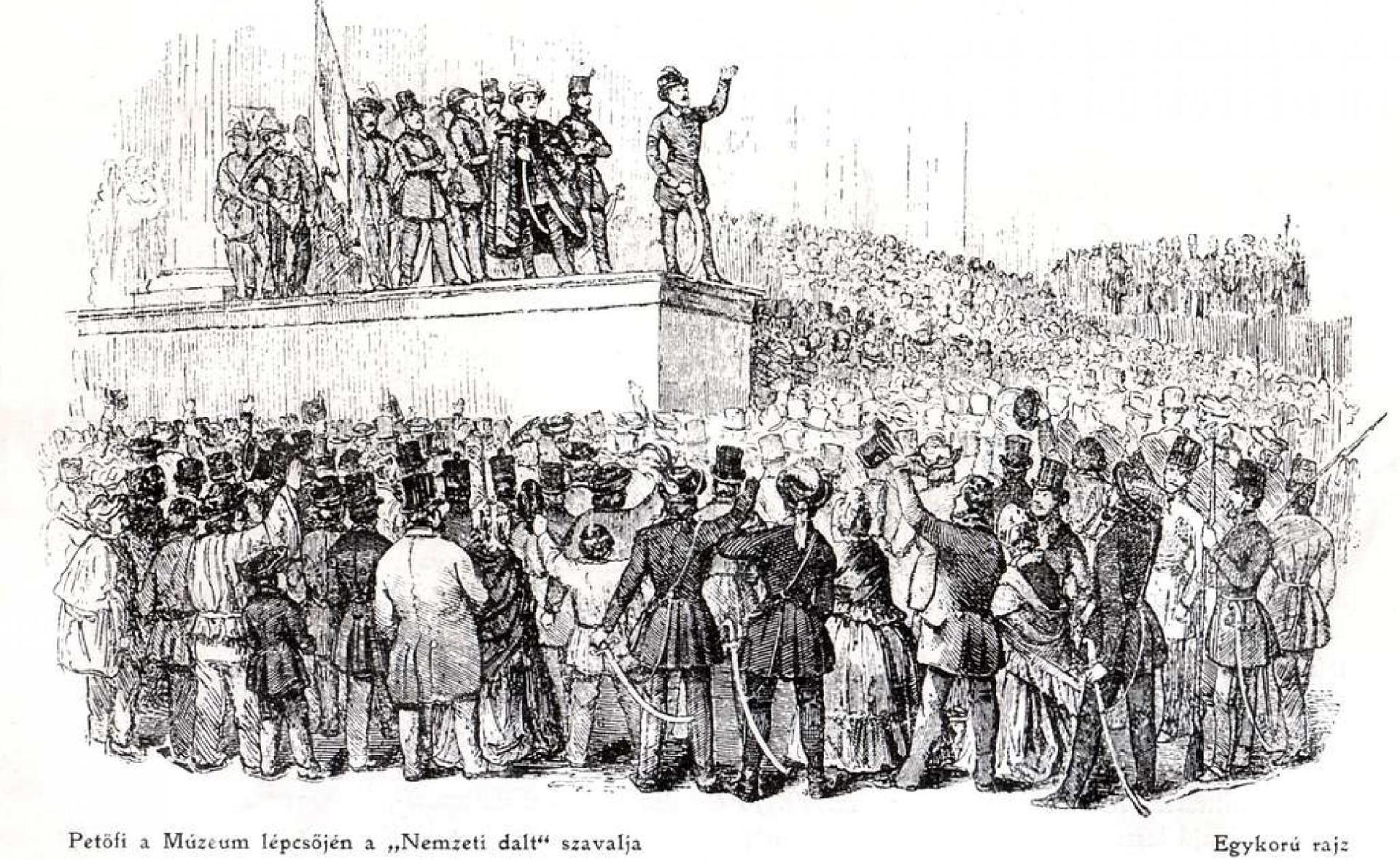On March 15, 1848, in the wave of political uprisings in Europe, an initially successful bloodless uprising also broke out in Pest-Buda, which aimed to achieve the bourgeois transformation of society and national sovereignty. Although the armed struggle was suppressed in 1849, it was victorious in the long run. Modern parliamentary Hungary was born.
On March 15, 1848, Sándor Petőfi and the other Márciusi Ifjak, the Young People of March, demonstrated in Budapest reading the “12 Points”, their demands to the Habsburg governor—also reciting one of Petőfi’s poems, Nemzeti dal, “National Song”, in front of a crowd on the stairs of the Hungarian National Museum.

Nemzeti dal, “National Song”

12 points of the Hungarian Revolutionaries of 1848

12 points of the Hungarian Revolutionaries of 1848:
What the Hungarian nation wants.
Let there be peace, liberty, and concord.
1. We demand the freedom of the press, the abolition of censorship.
2. Independent Hungarian government in Buda-Pest.
3. Annual national assembly in Pest.
4. Civil and religious equality before the law.
5. National army.
6. Universal and equal taxation.
7. The abolition of socage.
8. Juries and courts based on an equal legal representation.
9. A national bank.
10. The army must take an oath on the Constitution, send our soldiers home and take foreign soldiers away.
11. Setting free the political prisoners.
12. Union [with Transylvania].
Equality, liberty, brotherhood!
